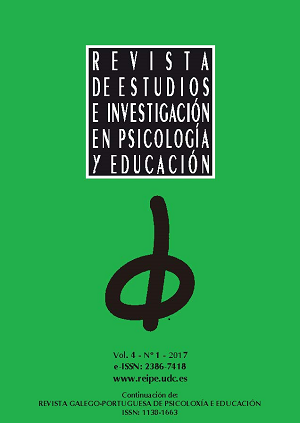Male teachers’ representations about male teachers
Main Article Content
Abstract
The social representations prevalent in society are that women have better conditions to work professionally in the field of education by joining the female image with the role of educator mother. However, what do the teachers think men in this regard? To better understand this reality is that justified the present study aims to investigate the social representations of teachers men about gender relations and male presence in teaching. The qualitative research was carried out by conducting semi-structured interviews with five men who had experience of working as teachers from basic education to higher education. The results show up that normally men find difficulty at working with children, especially because the predominant representations in the society and incorporated by the majority of teachers, are that women have specific skills, related to the maternity which favor the work with in teaching.
Keywords:
Downloads
Article Details
References
Alves, N. N. L. (2006) Amor à profissão, dedicação e o resto se aprende: significados da docência em educação infantil na ambiguidade entre a vocação e a profissionalização. 29ª Reunião anual da ANPED, Caxambu-MG, outubro de 2006. Recuperado em maio de 2017 de http://29reuniao.anped.org.br/trabalhos/trabalho/GT07-2570--Int.pdf
Araujo, M. P. & Hammes, C.C. (2012). Androfobia na Educação Infantil. Interfaces da Educação. Paranaíba, 3 (7), 5-20.
Bandura, A. (1974). Aprendizage social y desarrollo de la personalidad. Madrid: Aliança.
Carvalho, C. V. (2001). Concepção de infância: um breve resgate histórico. In C.V. Carvalho & P.J. Costa (Orgs.). O bebê, a afetividade e a motricidade: do pré-natal aos 2 anos (pp. 17-22). Maringá: Dental Press Editora.
Carvalho, M. P. (1998). Vozes masculinas numa profissão feminina. Anais do Latin American Studies Association. Chicago: Illinois. Recuperado em 15 de abril de 2016, de http://biblioteca.clacso.edu.ar/ar/libros/lasa98/PintodeCarvalho.pdf
Dantas, C; Jablonski, B. & Feres-Carneiro, T. (2008). Paternidade: considerações sobre a relação pais-filhos após a separação conjugal. Paidéia (Ribeirão Preto), Ribeirão Preto, 14 (29). http://dx.doi.org/10.1590/S0103-863X2004000300010
Duarte, R. (2004). Entrevistas em pesquisas qualitativas. Educar, Curitiba, 24, 213-225. Recuperado em 13 de março de 2016, de www.scielo.br/pdf/er/n24/n24a11.pdf
Hypólito, A. L. M (1997). Trabalho docente, classe social e relações de gênero. Coleção Magistério, Formação e Trabalho Pedagógico. Campinas, SP: Papirus.
Jesus, S. N. (1998). Bem-estar dos professores: estratégias para realização e desenvolvimento profissional. Porto: Porto Editora.
Jodelet, D. (1989). Représentations sociales: un domaine en expansion. In Jodelet, D (Org.). Les représentations sociales (pp. 31-61). Paris: PUF.
Louro, G. L. (2007). Gênero, sexualidade e educação: uma perspectiva pós-estruturalista. 9. ed. Petrópolis: Vozes.
Moscovici, S. (1973). A social psychological analysis. London: Academic Press.
Oliveira, F. O., & Werba, G. C. (2003). Representações sociais. In Oliveira, F. (Org.). Psicologia social contemporânea (pp. 104-117). Petrópolis: Vozes.
Papalia, D. E; Olds, S. W. & Feldman, R. D. (2013). Desenvolvimento humano. 12ª ed. Porto Alegre: Artmed.
Ramos, J. (2011). Um estudo sobre os professores homens da educação infantil e as relações de gênero na rede municipal de Belo Horizonte – MG. Dissertação de Mestrado, Pontifícia Universidade Católica de Minas Gerais. Programa de Pós-Graduação em Educação. Belo Horizonte.



